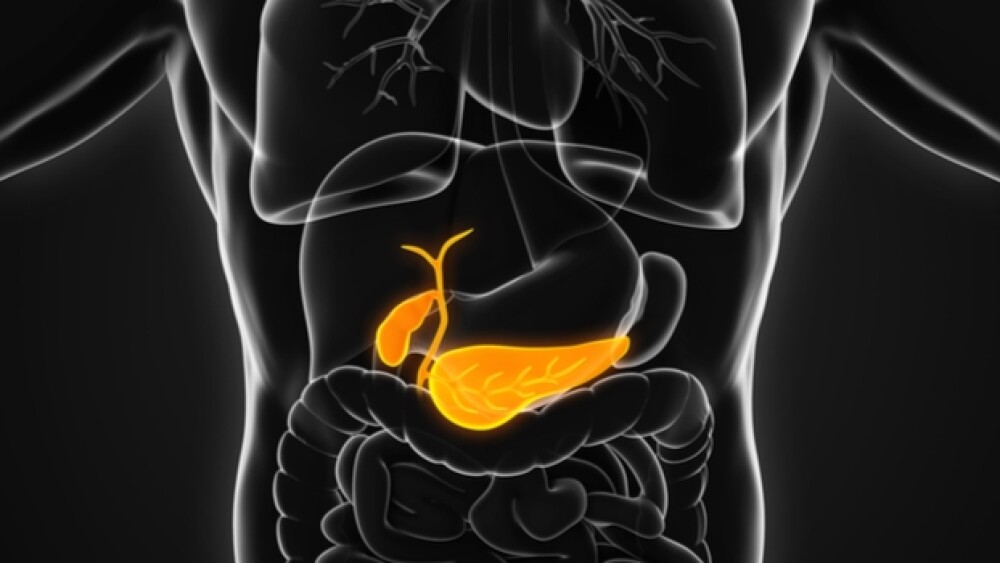Agios Pharmaceuticals, headquartered in Cambridge, Mass., announced that its Tibsovo (ivosidenib) hit its primary endpoint in the Phase III ClarIDHy trial in patients with cholangiocarcinoma with an isocitrate dehydrogenase 1 (IDH1) mutation.
Agios Pharmaceuticals, headquartered in Cambridge, Mass., announced that its Tibsovo (ivosidenib) hit its primary endpoint in the Phase III ClarIDHy trial in patients with cholangiocarcinoma with an isocitrate dehydrogenase 1 (IDH1) mutation.
Cholangiocarcinoma is a family of cancers that originate in the bile ducts. Bile ducts connect the liver and gallbladder to the small intestine. There are three broad classifications: intrahepatic, perihilar (also Klatskin tumor) and extrahepatic. They tend to be asymptomatic and aren’t diagnosed until they spread beyond the bile duct. The most common symptom is jaundice.
“Advanced cholangiocarcinoma is a life-threatening disease with no currently approved treatment options,” stated Chris Bowden, Agios’ chief medical officer. “The data from the ClarIDHy Phase III trial demonstrates the clinically significant benefit of Tibsovo in patients with this challenging disease who harbor the IDH1 mutation. We are committed to working with regulators to bring this potential treatment option to patients as quickly as possible.”
The ClarIDHy trial was a global, randomized Phase III trial in previously treated IDH1 mutant cholangiocarcinoma patients whose disease had progressed after one or two systemic therapies. The trial involved 185 patients who were randomized 2:1 to receive either Tibsovo 500 mg once a day or a placebo with crossover to Tibsovo permitted at the time of documented radiographic progression per RECIST 1.1.
The primary endpoint was progression-free survival (PFS) by independent radiology review. The drug met the primary endpoint. Details of the trial will be presented at the European Society for Medical Oncology (ESMO) Congress in Barcelona, Spain from September 27 to October 1, 2019.
Agios also plans on submitting a supplemental new drug application (sNDA) to the U.S. Food and Drug Administration (FDA) for this indication by the end of this year.
Tibsovo was approved for acute myeloid leukemia (AML) with a susceptible IDH1 mutation as detected by an FDA-approved test on May 2 in patients who are 75 years of age or older who have comorbidities that preclude use of intensive induction chemotherapy. Thermo Fisher Scientific provides next-generation sequencing to detect IDH1 mutations for all tumor samples.
The FDA granted the May 2 sNDA Priority Review and accepted it under the agency’s Real-Time Oncology Review pilot program. This gives the FDA access to clinical trial data before it is formally submitted to the agency. The drug received initial FDA approval in July 2018 for adults with relapsed or refractory (R/R) AML and an IDH1 mutation.
“Despite several new AML medicines approved in the last two years, many newly diagnosed patients are still not eligible for existing therapies or combination regimens because of age and other comorbidities,” stated Bowden on May 2. “With today’s additional Tibsovo approval, we are now able to provide a targeted, oral therapy to patients with an IDH1 mutation who may not have other treatment options. In addition, we are continuing our work to expand the utility of Tibsovo in newly diagnosed AML patients in ongoing Phase III trials in combination with both intensive chemotherapy and azacytidine.”
Tibsovo comes with a Boxed Warning of differentiation syndrome, which is associated with rapid proliferation and differentiation of myeloid cells and could be life-threatening or fatal if not treated.





